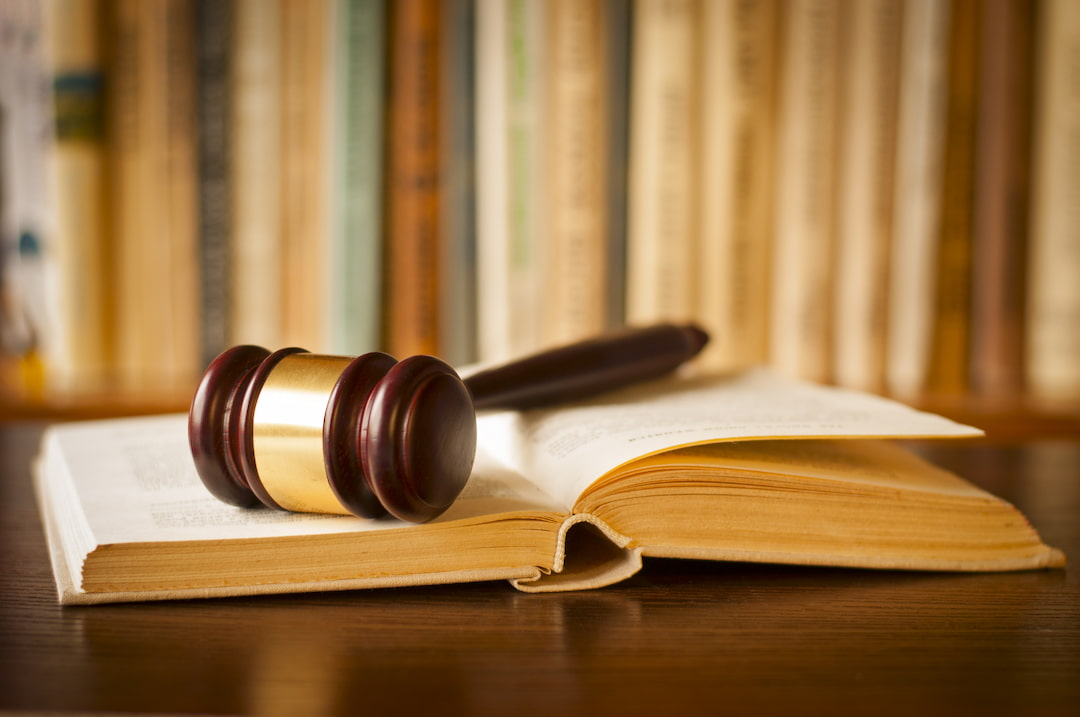Civil litigation is a legal process used to resolve disputes between individuals and organizations or between individuals and other individuals. Unlike criminal litigation, which involves the government prosecuting violations of criminal law, civil litigation is concerned with matters where one party is alleged to have committed a wrong, but not a crime, against another.
Key Takeaways
- Civil litigation involves legal disputes where parties seek monetary damages or specific performance rather than criminal penalties.
- The civil litigation process typically includes phases such as investigation, pleadings, discovery, trial, and possibly appeal.
- Common types of civil litigation cases include contract disputes, personal injury claims, and property disputes.
- Parties involved in civil litigation include the plaintiff, defendant, attorneys, and sometimes a judge or jury.
- Alternatives to civil litigation include mediation, arbitration, and negotiation, which can often be less time-consuming and costly.
Understanding Civil Litigation
Definition and Scope
Civil litigation involves one party filing a lawsuit against another to settle a dispute between the two. The goal of filing a civil lawsuit is often to seek financial compensation for damages sustained because of the defendant’s wrongdoing, often either because of the defendant’s negligence or malicious intent. However, the goal could also be to get the offending party to either perform or stop certain actions.
Key Characteristics
Civil litigation is distinct from criminal litigation, which involves the government prosecuting violations of criminal law. In civil litigation, the focus is on resolving disputes between individuals and organizations or individuals and other individuals. Unlike criminal cases, civil cases do not involve the prosecution of a crime. Instead, they address wrongs that one party alleges another has committed, such as breaches of contract or personal injury claims.
Common Types of Disputes
Civil litigation covers a wide range of disputes, including but not limited to:
- Contract Disputes
- Personal Injury Claims
- Property Disputes
- Landlord/Tenant Law
- Land Disputes
- Construction Law
- Corporate Law
- Corporate Regulation Compliance
- Title Work
- Probate Litigation
- Complex Corporate Litigation
Understanding the complexities of civil litigation in Omaha, including key factors, legal landscape, stages, attorney selection, and financial considerations, is crucial for anyone involved in such cases.
The Civil Litigation Process
Investigation and Pleadings
The civil litigation process kicks off with the investigation and pleadings stage. This is where the plaintiff files a petition to the court, explaining why they’re suing the other party. The petition and summons are then delivered to the defendant, informing them of the lawsuit and providing a timeframe to respond. This stage sets the foundation for the entire case.
Discovery Phase
Next up is the discovery phase, a critical part of civil litigation. During this phase, both parties exchange information and gather evidence to build their respective cases. This can involve:
- Depositions
- Interrogatories
- Requests for documents
- Admissions
The goal here is to ensure that both sides have access to the facts and can prepare adequately for trial.
Trial and Settlement
The final stage is the trial and settlement phase. Most civil litigation cases are settled before reaching trial, but if a settlement isn’t reached, the case proceeds to court. During the trial, both parties present their arguments, evidence, and witness testimonies. The judge or jury then deliberates and delivers a verdict. If the outcome is unsatisfactory, there may be an option to appeal.
The civil litigation process is designed to ensure fairness and justice, but it can be complex and time-consuming.
Types of Civil Litigation Cases

Contract Disputes
Contract disputes arise when one or more parties believe that a contract has been breached. These disputes can involve various agreements, including Business Sales/Mergers & Acquisitions, employment contracts, and service agreements. Resolving these disputes often requires a detailed examination of the contract terms and the intentions of the parties involved.
Personal Injury Claims
Personal injury claims are filed by individuals who have been injured due to the negligence or intentional actions of another party. These cases can include car accidents, medical malpractice, and slip and fall incidents. The goal is to seek compensation for the injuries sustained, covering medical expenses, lost wages, and other related costs.
Property Disputes
Property disputes can involve issues related to Real Estate, such as boundary disagreements, zoning issues, and disputes over property ownership. These cases often require a thorough investigation of property records and may involve expert testimony to resolve the matter.
Commercial Leases
Disputes over Commercial Leases can arise between landlords and tenants regarding lease terms, rent payments, property maintenance, and other lease-related issues. These disputes often require a careful review of the lease agreement and may involve negotiation or litigation to reach a resolution.
Injury to Property
Injury to property cases involve damage to someone’s property due to another party’s actions. This can include vandalism, negligence, or other forms of property damage. The goal is to seek compensation for the repair or replacement of the damaged property.
Roles of Parties in Civil Litigation

Plaintiff and Defendant
In civil litigation, the plaintiff is the party who initiates the lawsuit, seeking relief for a grievance. The defendant, on the other hand, is the party being sued and must respond to the plaintiff’s claims. Both parties play crucial roles in presenting their cases and providing evidence to support their positions.
Attorneys and Legal Teams
Attorneys are essential in civil litigation, offering legal representation and advice to their clients. They ensure that the litigation process is conducted fairly and efficiently. Legal teams often include paralegals and other support staff who assist in gathering evidence, preparing documents, and managing case logistics.
Judge and Jury
The judge oversees the legal proceedings, ensuring that the trial follows the rules of the court and that both parties have a fair opportunity to present their cases. In some cases, a jury may be involved to determine the outcome based on the evidence presented. The judge and jury work together to uphold justice and resolve the dispute.
Understanding the roles of each party in civil litigation is crucial for navigating the complexities of the legal system. This knowledge helps in deciphering key terms in corporate litigation, understanding roles, procedures, and phases.
Alternatives to Civil Litigation

Mediation
Mediation is a popular alternative to civil litigation where a neutral third party, known as a mediator, helps the disputing parties reach a mutually acceptable agreement. This process is often less formal and more flexible than traditional litigation. Mediation can save both time and money and is particularly useful in disputes involving Business Succession or Seller-Financing.
Arbitration
Arbitration involves a neutral third party, called an arbitrator, who listens to both sides and then makes a binding decision. This method is often faster and less expensive than going to court. Arbitration is commonly used in resolving disputes related to Contracts and other business matters. The arbitrator’s decision is usually final, with limited opportunities for appeal.
Negotiation
Negotiation is the most informal of the alternatives to civil litigation. It involves direct discussions between the parties to reach a settlement. This method allows for a great deal of flexibility and can be tailored to the specific needs of the parties involved. Negotiation is often the first step in resolving disputes and can be particularly effective when both parties are willing to compromise.
While these alternatives can be effective, they may not always result in a final resolution of the dispute. It’s important to evaluate the desirability of these alternatives early to allow their timely implementation.
Challenges in Civil Litigation

Time and Cost
Civil litigation can be complex and time-consuming, often stretching over months or even years. The process requires specialized knowledge and can be expensive due to attorney fees, court costs, and other related expenses. Litigators face new challenges under revised open laws, which can further complicate the process.
Emotional Stress
The emotional toll of civil litigation should not be underestimated. Parties involved may experience significant stress and anxiety, impacting their personal and professional lives. The adversarial nature of the process can strain relationships and lead to emotional exhaustion.
Complexity of Legal Procedures
Navigating the legal procedures in civil litigation is no small feat. The process emphasizes legal argument and procedure, where the skills of the litigators can significantly influence the outcome. Understanding the specific rules and principles governing each type of dispute is crucial for success.
Civil litigation is not just a legal battle; it’s a journey that tests the resilience and determination of all parties involved.
Outcomes of Civil Litigation
Monetary Damages
One of the most common outcomes in civil litigation is the awarding of monetary damages. This means that the losing party must pay a certain amount of money to the winning party as compensation for the harm or loss suffered. The amount can vary widely depending on the specifics of the case.
Specific Performance
In some cases, the court may order the losing party to perform a specific act rather than paying money. This is known as specific performance. It’s often used in contract disputes where monetary compensation isn’t sufficient to remedy the situation.
Appeals Process
If either party is dissatisfied with the outcome, they have the right to appeal the decision. The appeals process involves a higher court reviewing the case to determine if there were any legal errors that could change the outcome. This can be a lengthy and complex process, but it provides an additional layer of scrutiny to ensure fairness.
The Orr Law Group provides legal representation in Nebraska and Iowa. Services include corporate and civil litigation, with a focus on clarity and expertise.
Final Takeaways
Civil litigation plays a crucial role in our legal system by providing a structured and formal process for resolving disputes between individuals and organizations. Unlike criminal litigation, which deals with offenses against the state, civil litigation focuses on conflicts where one party seeks monetary compensation or specific performance from another. Whether it’s a personal injury claim, a contract dispute, or a landlord-tenant disagreement, civil litigation offers a pathway to justice when other methods like mediation or arbitration are not suitable. Civil litigation encompasses a wide array of legal disputes, demonstrating the diverse nature of what is civil litigation. Understanding the phases and purpose of civil litigation can help individuals navigate these complex legal waters more effectively. By demystifying this process, we hope to empower you with the knowledge to approach civil disputes with confidence and clarity.
Frequently Asked Questions
What is civil litigation?
Civil litigation is a legal process used to resolve disputes between individuals and organizations or between individuals and other individuals. Unlike criminal litigation, which involves the government prosecuting violations of criminal law, civil litigation is concerned with matters where one party is alleged to have committed a wrong, but not a crime, against another.
What types of disputes are involved in civil litigation?
Civil litigation can involve a broad range of disputes, including contract disputes, personal injury claims, property disputes, family law matters, intellectual property disputes, antitrust issues, and medical malpractice.
What is the goal of civil litigation?
The goal of civil litigation is often to seek financial compensation for damages sustained because of the defendant’s wrongdoing. However, the goal could also be to get the offending party to either perform or stop certain actions.
How does civil litigation differ from criminal litigation?
Civil litigation focuses on conflicts between parties, ranging from contract disputes to personal injury claims, and seeks monetary compensation or specific performance. In contrast, criminal litigation involves the government prosecuting violations of criminal law and seeks to punish the offender.
What are the phases of the civil litigation process?
The civil litigation process typically involves phases like investigation, pleadings, discovery, pre-trial, trial, settlement, and possibly appeal. This structure allows for an orderly and systematic approach to dispute resolution.
What are some alternatives to civil litigation?
Alternatives to civil litigation include mediation, arbitration, and negotiation. These methods can provide a more cost-effective and quicker resolution to disputes without the need for a formal court process.


